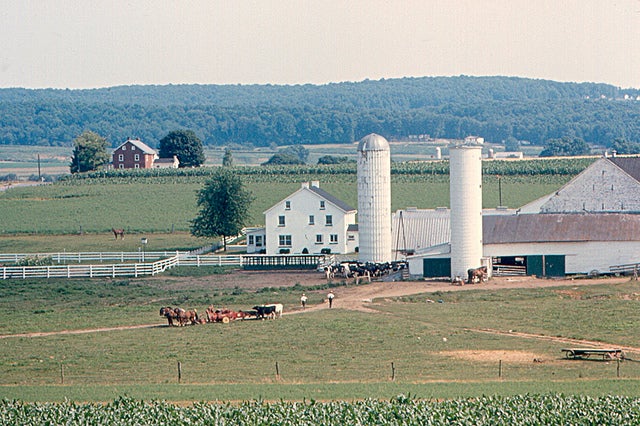An Amish Environment Protects Against Asthma, New Research Shows
Dust rich in farm animal microbes may give immune system a boost

Amish children spend a lot more time around farm animals than most of their peers. It turns out that this might be protecting them against asthma. Microbes from livestock on Amish farms find their way into house dust and strengthen kids’ immune systems, indicates research published Wednesday in the New England Journal of Medicine.
The kind of environment people grow up in plays a role in their susceptibility to asthma and allergies. Kids who are exposed to many types of microbes are less likely to develop these conditions. Living on a traditional farm, or with pets, both seem to offer some protection. The Amish, who dwell in single-family farms and avoid modern technology, have a particularly low prevalence of allergies.
For the new study, researchers compared the Amish to another group with a similar lifestyle and ancestry, the Hutterites. Unlike the Amish, this community uses industrialized farming methods, and also has a higher prevalence of childhood asthma.
A few differences emerged between Amish and Hutterite kids and their homes. Asthma prevalence among the Hutterite kids was 21.3 percent, versus 5.2 percent in the Amish schoolchildren. In their blood, the Amish children had more white cells called neutrophils that fight infections. Their blood also had fewer cells called eosinophils involved in allergic reactions.
Dust samples from Amish houses contained 6.8 times more microbes than those from Hutterite houses. The researchers think this is because Amish houses sit closer to their barns.
To find out how this dust might affect the immune system, the team gave it to mice with an asthma-like condition. Mice that inhaled dust from Amish houses suffered from fewer symptoms over time, while Hutterite house dust offered no protection.
“We hope that our findings will allow the identification of relevant substances that will lead to completely novel strategies to prevent asthma and allergy,” coauthor Erika von Mutius, of Dr. von Hauner Children’s Hospital in Munich, told BBC.
